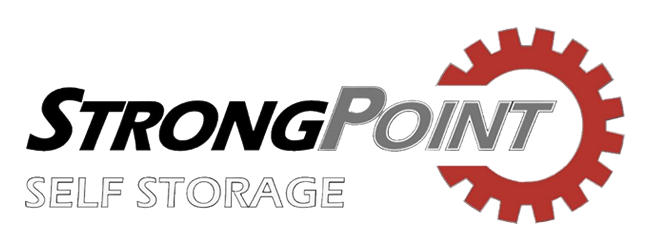Get Some Storage Tips
Preparing For Storage
- Rent the smallest amount of space you will need and pack the unit full.
- Start by gathering as many boxes as you think you will need as well as tape, markers, and packing material (e.g., foam shipping noodles, bubble wrap, packing paper or towels).
- If possible, try to use uniformly sized boxes for easy stacking.
- Make up an inventory list of your items and keep it in a safe place (at home or in a safe deposit box) away from the unit.
- List contents of boxes on all four sides; number the boxes and seal with tape.
- Be sure your boxes are strong enough to hold 25-30 pounds (although we suggest not putting too much in each box).
Protecting Your Items
- Prepare your space by placing a protective cover on the floor under your goods.
- If renting a drive up/exterior unit, place your storage items on 2x4 boards or on pallets to guard against dampness. The concrete floor may become cold and damp.
- Do not store anything COMBUSTIBLE (e.g., paint thinner, gasoline, solvents, or paint).
- Dishes and glasses should be wrapped in paper and packed in sturdy boxes. Stack them on top.
- Pictures and mirrors should be wrapped in cardboard, marked “FRAGILE” and stacked on end.
- Avoid placing sharp or heavy objects on top of upholstered furniture.
- Cover stuffed furniture with cardboard or blankets to protect against dust.
- If you stand mattresses on their sides, prop them up so they stand straight. Otherwise, they tend to bend out of shape and become lumpy.
- Wipe any items made of metal - bikes, metal tables, tools, etc. - with machine oil to prevent rusting.
Packing Your Storage Unit
- Plan your storage space. Place items that you may need to access often in the front of the unit.
- Try to leave an aisle down the center of the storage unit for easier access. Leave a small space between the walls and boxes to allow for air circulation.
- Stack heavier boxes on the bottom and lighter boxes on top.
- Put TVs and other electronics in the rear of your unit.
- Shovels, hoes, rakes, and hoses can be stored together in empty trash cans. Stack extra cans inside each other.
- Tables that have removable legs should be broken down to save space.
- Sofas and loveseats can be stored on end to save floor space. Wrap cushions in plastic and place on top of sofas.
- Larger appliances make excellent “packaging cases” for blankets, towels, tablecloths and clothes.
- Furniture with drawers can be utilized as storage places for pictures, knick-knacks, china, silverware, small items, etc. Wrap them in tablecloths, towels, or blankets to prevent breakage.
What to Store In Your Storage Unit
When it comes to renting a storage unit, deciding what to store can be a daunting task. To make the most of your storage space and ensure the safety of your belongings, here are some helpful tips on what to store in your storage unit.
- Seasonal Items: Store seasonal items that you won't be using for a while, such as holiday decorations, winter gear, or patio furniture during the colder months. This keeps them out of the way and prevents clutter in your home.
- Furniture: If you're downsizing, renovating, or simply need extra space, storing furniture in a storage unit is a practical solution. Disassemble larger pieces to save space, and cover them with protective sheets or blankets to prevent dust or damage.
- Business Inventory: For entrepreneurs or small business owners, a storage unit can serve as a cost-effective solution for storing excess inventory, marketing materials, or equipment. Opt for climate-controlled units to protect sensitive items like electronics or documents.
- Appliances: If you're in the middle of a move or undergoing kitchen renovations, storing appliances in a storage unit can free up valuable space. Make sure to clean and dry them thoroughly before storing to avoid any potential mold or mildew issues.
- Collectibles and Valuables: Valuable items, collectibles, or family heirlooms are often better off stored in a secure storage unit rather than sitting at home where they could be damaged or stolen. Choose a storage facility with reliable security measures, such as surveillance cameras and gated access.
Remember to label and organize your items in the storage unit for easy access. Prioritize items that you may need to retrieve in the near future by placing them towards the front. By following these storage tips, you can make the most of your storage unit and keep your belongings secure and well-preserved.
Manage Your Storage Unit Online
Managing your storage unit has never been easier with the convenience of online tools and services. Whether you're renting a self-storage unit or looking to organize your existing storage space, here are some valuable tips on how to efficiently manage your storage unit online.
- Online Reservations: When searching for a storage unit, take advantage of storage facility websites that offer online reservations. This allows you to browse available unit sizes, compare prices, and reserve the perfect unit without leaving the comfort of your home.
- Bill Payment: Most storage facilities provide online portals or apps where you can conveniently pay your storage rent and manage your billing preferences. Set up automatic payments to avoid late fees and easily track your payment history.
- Unit Inventory: Maintain an online inventory of the items stored in your unit. Take photos and create a digital catalog to keep track of what you have stored. This will help you locate specific items without the need to physically visit the storage unit.
- Contactless Communication: Many storage facilities offer online communication options such as email, chat, or support tickets. Use these channels to ask questions, report issues, or request assistance without the need for face-to-face interactions.
By embracing online storage management tools, you can streamline your storage experience, simplify administrative tasks, and have greater control over your storage unit. Take advantage of these tips to optimize your storage management process and enjoy a hassle-free storage journey.
Storing Fragile Items Safely
When it comes to storing your precious belongings, fragile items often cause the most concern. Whether it's your grandmother's china, valuable artwork, or delicate glassware, you'll want to take extra precautions to ensure they stay intact. Here are some tips on how to store fragile items safely in a self-storage unit.
- Choose the Right Packing Materials: Don't cut corners when it comes to packing materials. Use high-quality, sturdy boxes and plenty of cushioning materials like bubble wrap, packing peanuts, or foam sheets. For extremely delicate items, consider double-boxing for extra protection.
- Wrap Individual Items: Each fragile item should be wrapped individually to prevent friction and potential chipping. Use bubble wrap or foam sheets to cover the item entirely, securing it with packing tape. For smaller items like glasses or cups, fill the inside with packing paper for added stability.
- Label Clearly: Never underestimate the power of a well-placed label. Mark boxes containing fragile items with bold, clear labels that say "Fragile" or "Handle with Care." This ensures that anyone moving or handling the box knows to treat it gently.
- Don't Overpack Boxes: While it might be tempting to put as many items as possible into a single box, overpacking can lead to breakages. Make sure there's enough room in the box for cushioning material around each item. The box should close comfortably without bulging or caving in.
- Opt for Climate-Controlled Storage: Temperature and humidity fluctuations can be detrimental to fragile items like antiques and artwork. Opt for a climate-controlled storage unit to maintain a consistent environment, reducing the risk of warping or deterioration.
- Store Wisely: When placing boxes in your storage unit, remember to put heavier items at the bottom and lighter, fragile boxes on top. Avoid stacking boxes too high, as this can make them unstable and prone to tipping over.
- Periodic Checks: Regularly inspect your storage unit to ensure that your fragile items remain in pristine condition. Look for signs of moisture or pest activity and make any necessary adjustments to your storage setup.
By following these guidelines, you can minimize the risks and store your fragile items with confidence and peace of mind.
How to Store Items for Different Seasons
Seasons come and go, and with them, the items you use daily may change. Whether it's holiday decorations, winter clothing, or summer camping gear, properly storing these items can help extend their lifespan. Here are some tips for effective seasonal storage:
- Identify Seasonal Items: The first step is identifying which items you won't need for the upcoming season. Separate these items and make an inventory to help you keep track.
- Use Quality Packing Supplies: Invest in quality packing supplies like sturdy boxes, bubble wrap, and sealing tape. These materials protect your items from dust, moisture, and other potential damages.
- Label Everything: A simple label can save you time and stress when you need to find something. Use a marker to write down the contents of each box and the season they belong to.
- Choose the Right Storage Unit: Opt for a climate-controlled storage unit, especially for sensitive items like electronics and textiles. The controlled environment will keep your belongings in optimal condition.
- Strategic Placement: Place items you'll need soonest at the front of your storage unit for easy access. Items for distant seasons can be stored in the back.
- Regular Checks: Visit your storage unit periodically to inspect your belongings. Look for signs of damage like mold or pest activity and address them immediately.
By following these steps, you can maximize the efficiency of your storage unit and ensure that your seasonal items are ready for use when their time comes again.
What Not to Store in Your Storage Unit
While storage units are incredibly versatile and useful, there are certain items that should never be stored in them. Being aware of these items not only ensures your safety and that of the facility but also helps you comply with legal regulations. Here’s a quick rundown of what you should avoid storing in your storage unit:
- Hazardous Materials. Any items that are flammable, explosive, or toxic are a definite no. This includes gasoline, paint, chemicals, fireworks, and other potentially dangerous substances. These materials pose a serious risk of fire or chemical spill, endangering the facility and your belongings.
- Perishable Food Items. Storing perishable food items can attract pests and lead to bad odors, mold, and bacteria growth. This includes any type of food that can spoil, like meat, dairy products, fruits, and vegetables. Even pet food should be avoided.
- Illegal Items and Stolen Goods. It goes without saying that illegal items or stolen goods should never be stored in a self-storage unit. This includes illegal drugs, firearms (in some jurisdictions), and any item obtained through illegal means.
- Sensitive Personal Documents. While storage units are secure, storing sensitive personal documents or items that contain your personal information can be risky. In the unlikely event of a security breach, these could be compromised.
- Living Things. Never use a storage unit to house pets, plants, or any other living thing. Not only is this inhumane and illegal, but it can also cause significant damage to the unit and the living organism.
- Wet Items. Avoid storing items that are wet or damp. These can cause mold and mildew to grow, which can damage your belongings and the storage unit.
By understanding and adhering to these guidelines, you can ensure a safe and compliant storage experience. Remember, when in doubt about a particular item, it's always best to ask your storage facility for guidance.


